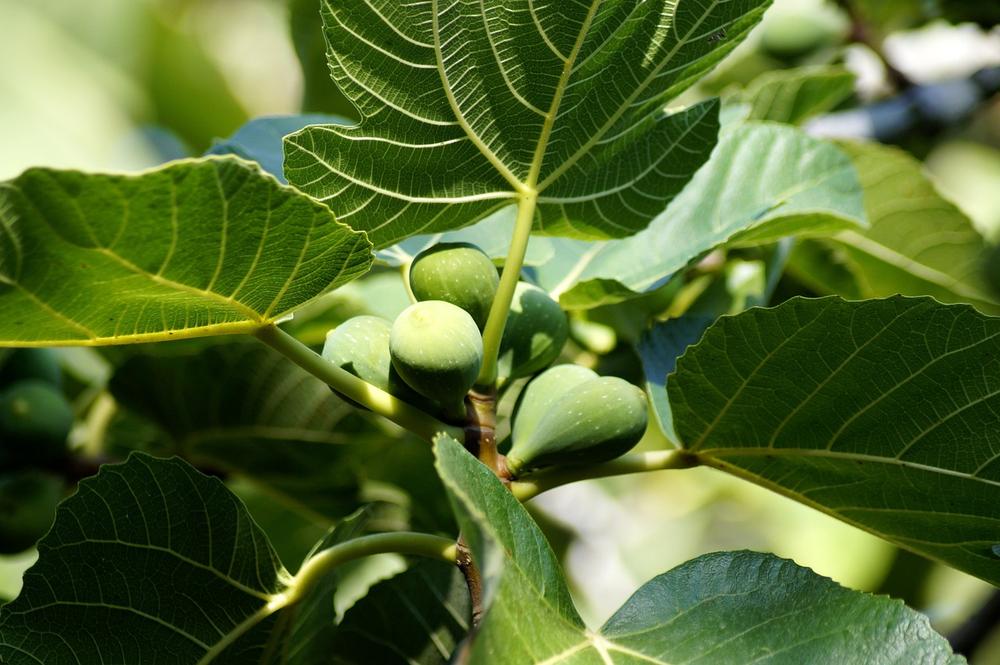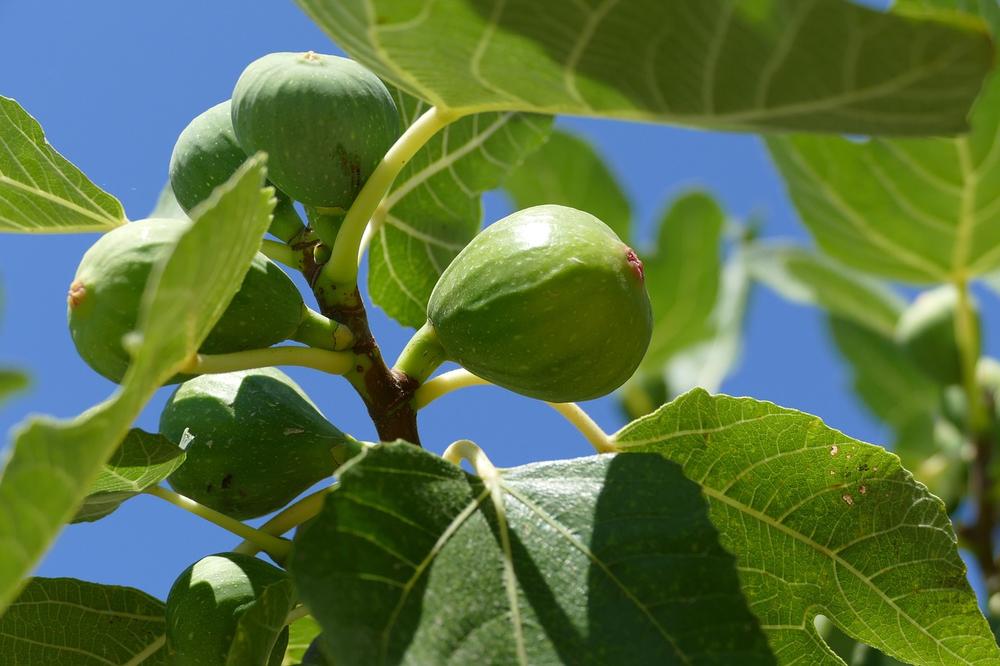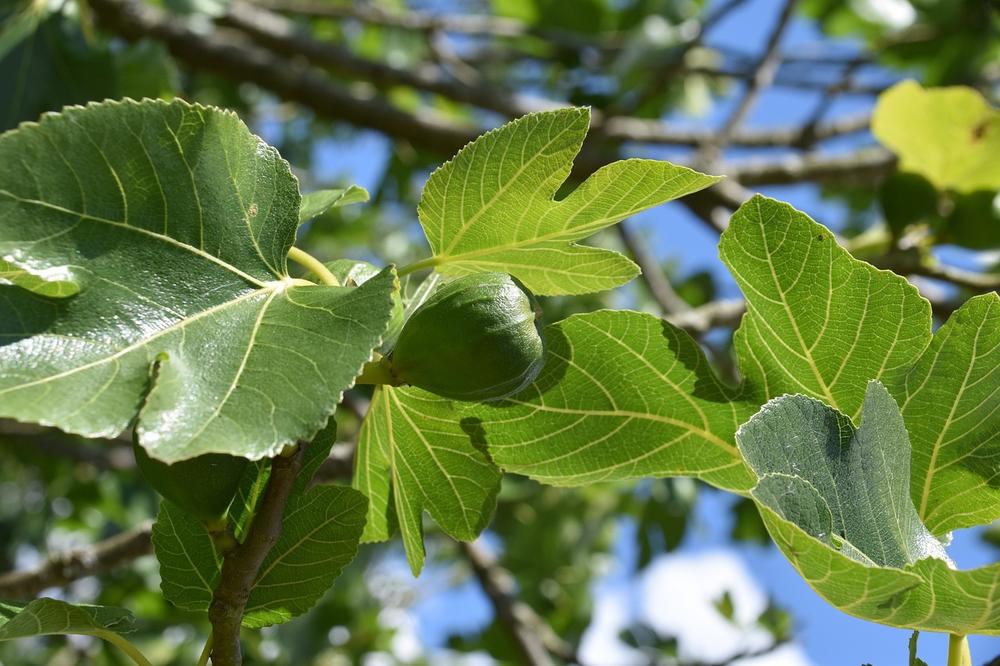What Is the Spiritual Meaning of the Fig Tree? Nourishment!

Oh honey, let me introduce you to the fabulous fig tree and its spiritual meaning.
This enchanting tree has been revered for centuries, symbolizing abundance, fertility, and transformation.
But it doesn't stop there, darling.
The fig tree also represents enlightenment and spiritual growth, reminding us to connect with our deeper selves and embrace the journey of self-discovery.
So grab your tarot cards and dig into the secrets of the fig tree!
| Spiritual Meanings | Description |
|---|---|
| Nourishment | The fig tree symbolizes nourishment, representing the spiritual and emotional sustenance it provides. Just as the tree nourishes us physically with its fruits, it also nourishes our soul by providing comfort, support, and fulfillment. |
| Abundance | The fig tree is often associated with abundance, signifying the bountiful blessings and abundance of life. It represents a fruitful and abundant existence, both materially and spiritually, reminding us to appreciate and be grateful for the abundance around us. |
| Growth and Transformation | The fig tree symbolizes growth and transformation, representing the cycle of life and its continuous evolution. Just as the tree grows from a tiny seed into a majestic tree, it teaches us the importance of personal growth, adaptation, and transformation in our spiritual journey. |
| Connection to Spirituality | The fig tree holds a deep connection to spirituality, symbolizing the link between the earthly and divine realms. It represents the bridge between the physical world and the spiritual realm, inviting us to explore our spirituality and seek a deeper connection with higher powers or consciousness. |
| Wisdom and Discernment | The fig tree is often associated with wisdom and discernment. It signifies the ability to make wise choices and decisions, to see beyond the surface and understand the deeper truths. Just as the tree's leaves and fruits are distinctively shaped, it reminds us to exercise discernment in our thoughts, actions, and relationships. |
Fig Tree Spiritual Meaning
The fig tree has significant spiritual meaning.
It's like a bridge between the earthly and spiritual realms.
Different cultures and religions view it as wise, guiding, fertile, abundant, prosperous, and knowledgeable.
Spirits find comfort in its branches, while its wood helps souls on their journey.
When you see a fig tree, it means you're growing personally and gaining important wisdom.

It also represents nourishment, change, and a spiritual awakening.
The lessons from the fig tree include connecting with your higher self and accessing inner knowledge.
Finding balance and harmony in life is another connection to it.
In some traditions, it's associated with the Tree of Life, signifying luck, prosperity, and mindfulness.
According to the Bible, the fig tree embodies wisdom, enlightenment, interconnectedness, and knowledge.
Its presence signifies the birth of a new church and reflects the cyclical nature of existence.
With such profound symbolism, the fig tree becomes an intriguing and powerful spiritual symbol. ✨
Main points I'll expand upon further down this article:
- Fig trees hold significant meaning and symbolism in various religions and cultures.
- They represent blessings, abundance, and are considered sacred.
- In Christianity, fig trees symbolize Israel and religious life.
- Buddhists see fig trees as symbols of enlightenment, while Hindus consider them holy.
- Fig trees are associated with the Tree of Life, immortality, and divine knowledge.
- They are also linked to fertility, prosperity, growth, and emotional support.
- Bearing fruit is important in Christianity, representing sanctification and becoming like Jesus.
- Jesus cursed a fig tree that didn't bear fruit, highlighting the importance of faith and authenticity.
- Gratitude, recognizing goodness, and the perpetual cycle of life are emphasized.
But what about the ancient and diverse symbolism attached to fig trees?
Let's explore their significance across different cultures and religions...
The Meaning, Symbolism, and Cultural Significance of Fig Trees
Fig trees as a symbol of interconnectedness and the cyclical nature of life
Fig trees are powerful symbols. They represent the Tree of Life in many religions and stories. This means that all living beings are connected, and life is a never-ending cycle.
In Christianity, fig trees are special.
They have a strong connection to Israel and religious life.
For example, Jesus cursed a fig tree because it didn't bear fruit.
Buddhists think fig trees are symbols of enlightenment. They believe these trees offer shade and shelter to those seeking spiritual awakening, just like Buddha found enlightenment under the Bodhi tree.
Fig trees in Hinduism and their association with divinity
Hindus believe fig trees are very important. It's said that the god Vishnu was born under a fig tree, making it sacred.
In Hindu mythology, fig trees are seen as sources of wisdom and knowledge.
Fig trees are connected to concepts like immortality, wisdom, and divine knowledge in many different cultures and religions.

They remind us of our place in the grand scheme of things and our deep connections to nature.
Fig trees and their association with fertility, prosperity, and emotional support
Besides their spiritual meaning, fig trees also bring positive energy according to feng shui, an ancient Chinese art.
According to feng shui, placing a fig tree in specific areas at home can bring you wealth, fertility, and emotional well-being.
The lush foliage and abundance of fruits on fig trees symbolize prosperity and growth.

Having a fig tree around creates a harmonious environment and provides emotional support.
Whether you see fig trees with a spiritual lens or appreciate their cultural significance, there's no denying the profound impact they've had on human beliefs throughout history.
But the symbolism of fig trees doesn't end there!
In fact, in religious texts like the Bible, figs hold a profound spiritual meaning that aligns with moments of realization and repentance.
Let's dive deeper into their significance...
The Symbolic Significance of Figs in the Bible
Figs, found in biblical mentionings, hold a deeper meaning beyond their earthly presence.
These humble fruits symbolize profound spiritual revelations and the ever-present desire for repentance. Adam and Eve, upon recognizing their transgressions, chose fig leaves to conceal their newfound vulnerability as a testament to their longing for forgiveness.

Similarly, opening prayers have become staples in worship and Bible study circles, creating an opportunity for seekers to connect with the divine and seek solace in spiritual guidance.
Figs, through their biblical references, serve as potent reminders of our constant need for realization, repentance, and the nurturing embrace of spirituality.
Reasons Why Jesus Cursed the Fig Tree
Jesus cursed the fig tree to symbolize his disappointment in Israel's lack of spiritual growth. This story emphasizes the importance of bearing fruit in our spiritual lives and reflecting the teachings of Jesus through tangible outcomes and a genuine pursuit of goodness, love, and truth.
Alright, listen up. Here's the deal:
Jesus and his crew were walking when he spotted a fig tree.
Feeling hungry, he approached it hoping for some delicious figs.
But guess what?
The stupid tree had no figs on it.
Not a single one.
I know what you're thinking, "Who cares? It's just a tree."
But hold your horses, my friend.
This wasn't any old tree.
It was a symbol of Israel's spiritual state.
The fig tree represented Israel and their lack of spiritual growth.
Just like the tree had leaves but no fruit, Israel had all the rituals but lacked true faith.
By cursing the fig tree, Jesus expressed his disappointment in their fruitlessness.
He wanted them (and us) to understand that being a follower of God is more than just going through the motions or looking good.
It's about producing results in our spiritual journey.
Listen up, my dear reader, bearing fruit is vital for us as believers.
Simply calling ourselves Christians isn't enough.
We need to show it through our actions and how we live our lives.
Our love, kindness, generosity, and faith should be obvious to everyone around us.
But here's the kicker:
Difficulties can reveal who we truly are and expose any flaws in our fruit-bearing abilities.
It's when things get tough that our relationship with God gets tested.
Do we stay faithful?
Do we hold onto hope?
Or do we crumble under pressure?
The fig tree curse reminds us that our appearance should match the goodness and truths expected of us.
It highlights genuine faith and the power of prayer.
And let me tell you, Jesus isn't shy about calling out those who talk the talk but don't walk the walk.
He wants us to assess our lives and ask ourselves, Am I really bearing fruit?
Am I genuinely reflecting Jesus' teachings?
Because, at the end of the day, it's not just about reciting prayers or going to church.
It's about living a life that brings glory to Him and spreads His kingdom.
So take a minute, my friend.
Think about your own spiritual journey.
Are you bearing fruit?
Are you showing the love, kindness, and generosity that should flow from within?
Because remember, Jesus didn't curse that fig tree for no reason.
He did it to teach us an important lesson about having genuine faith and producing spiritual growth.
Keep growing, keep bearing fruit, and keep shining your light in this world.
Fig Fruit Spiritual Meaning
Fig fruits have a deep spiritual meaning that you don't want to overlook.
Let me break it down for you.
- Sweetness and nourishment: Fig fruits symbolize spiritual prosperity and abundance. They are believed to connect us with divine energy and higher consciousness.
- Gratitude and thankfulness: Daily practices of gratitude and appreciation lead to spiritual well-being, and fig fruits serve as a reminder of this.
- Symbolism of fig tree bearing fruit: It represents positivity, growth, and fertility. Conversely, the absence of fruit signifies stagnation or infertility.
- Ripening figs and patience: When figs ripen, they symbolize favorable occurrences. On the other hand, unripe figs teach us the importance of practicing patience.
- Recognizing the good in others: Just like the fig tree bears fruit year-round, we should strive to recognize and appreciate the positive qualities in others.
In a nutshell, fig fruits represent fertility, prosperity, sweetness, new life, and the abundance that comes from spiritual connections and intuitive understanding.

So, embrace the symbolism of fig fruits and let their spiritual meaning enrich your life. 🍃
Now that we've explored the profound spiritual meaning of fig fruits, you may be wondering how the significance extends to other parts of the fig tree.
Well, prepare to uncover an intriguing symbolism surrounding fig leaves and their connection to repentance and seeking forgiveness from God.
Let me share with you the captivating insights I've discovered!
Symbolic Interpretations of Fig Leaves
Fig leaves have a lot of meaning, way beyond just hiding your nakedness.
Here's what these deeper meanings can signify for you:
- When you see fig leaves, it can be a symbol that you need to repent and seek forgiveness from God if you've done something wrong.
- In dreams or when meditating, a fig leaf can represent the act of hiding things or covering up emotions, secrets, or shame.
- Fig fruits are known for giving wisdom, so when you think about fig leaves, consider that they hold even more significance.
- The fig tree itself is like a spiritual symbol, representing all things good. Its branches show affection, and its leaves are truths.
- If you align yourself spiritually with what the fig tree stands for, it means you're part of the church community.
- Thorns and bramble-bushes serve as symbols of evil going against everything good in both the natural and spiritual world.
These interpretations shed light on how intricate and deep fig leaves can truly be.
They remind us to look beyond the obvious and recognize the multifaceted nature of symbolism and spirituality.
If we embrace these symbolic connections, they can enrich and deepen our own spiritual journeys.
The Enduring Symbolism and Distinctive Features of Fig Trees
The fig tree, a symbol of strength and spiritual growth that has stood the test of time.

Here's what makes fig trees so unique:
- Fig trees have these big leaves, divided into three lobes or large ovals, adding to their charm.
- The fruits produced by most figs are round or shaped like little urns, giving them a distinct look.
- Fig trees need fig wasps for pollination, creating a fascinating relationship where these tiny bugs enter the flowers to help with reproduction.
- Some types of fig trees grow aerial roots, which they use to cling onto nearby structures or trees for support.
- Fig trees are incredibly adaptable, thriving both indoors and outdoors. That's why you'll find them in gardens, parks, and even potted plants inside your house.
- People have been growing fig trees for centuries because they're tough and can last a long time, proving the enduring power behind their symbolism.
With its profound meaning and remarkable features, the fig tree is sure to make any landscape more enchanting.
Popular Types of Fig Trees
In terms of fig trees, there exists more than just the variety known as Brown Turkey.
- Fiddle-Leaf Fig: Its leaves shaped like violins make it a unique addition to any garden.
- Weeping Fig: With its elegant drooping branches, this fig tree adds sophistication to your outdoor space.
- Creeping Fig: Great for covering walls or fences, this fig tree creates cascades of foliage.
- Little Fiddle Fig: A smaller version of the Fiddle-Leaf Fig, perfect for those with limited space.
- Rubber Fig: Its glossy green leaves bring shine and beauty to your garden.
- Oak Leaf Creeping Fig: Its oak-shaped leaves provide a stunning visual effect on structures.
- Decora Fig: This fig tree offers lots of fruit, ideal for fig lovers.
Each fig tree variety has its own unique characteristics, so you can find the perfect fit for your garden and personal taste.
With these options, you can create a fig-filled oasis that not only looks beautiful but also provides a lot of delicious fruit.
The choice is yours! 😊
And that's a wrap for today.
Before you leave, can I ask you something? Did my blog post help you out? If it did, I would greatly appreciate it if you could share it with your friends and family. It's super easy too! Just click on any of the social media sharing icons to spread the word instantly. Thank you so much!
Until next time,
-Naomi Sato